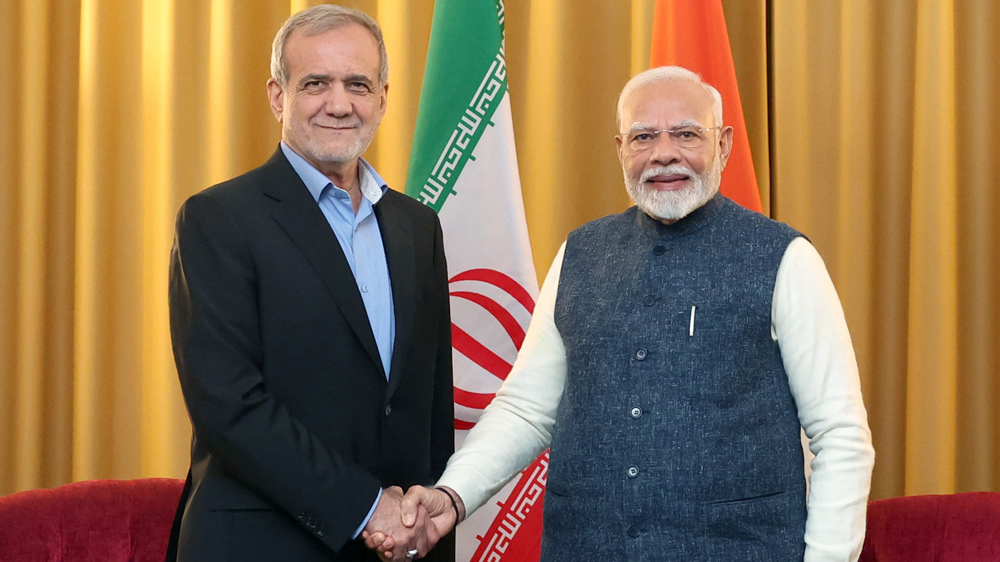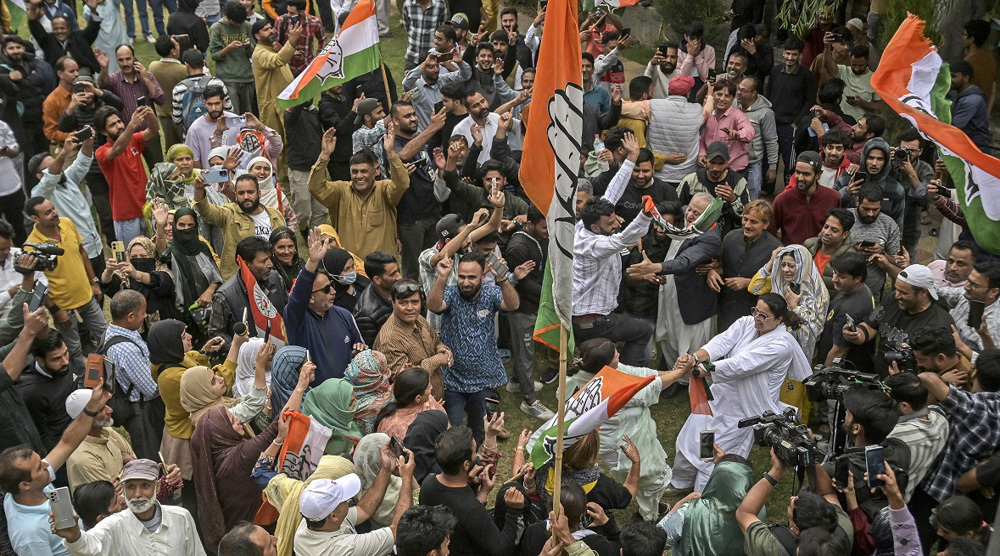India's Modi rallies troops at China border after deadly clash
Indian Prime Minister Narendra Modi has rallied the country’s troops near a disputed frontier with China, amid heightened tensions in the area following a deadly clash that killed 20 Indian soldiers.
Modi, who flew on Friday into the northern Himalayan region of Ladakh where Indian and Chinese troops are locked in a stand-off, underlined that the Indian military stood ready to defend the country.
Last month, twenty Indian soldiers were killed in a fighting in the Galwan Valley, a precipitous and rocky border area that lies between China’s Tibet and India’s Ladakh regions. There were no confirmed reports of Chinese casualties, with each side blaming the other for breaching the border and the subsequent incident.
The clash was the first such deadly fighting between the two nuclear-armed neighbors on the disputed border since 1967.
During the surprise visit on Friday, Modi accused China of “expansionism,” saying his country’s commitment to peace should not be seen as a sign of weakness.
“The era of expansionism is over... History has shown how expansionism pushed humanity towards destruction,” the Indian premier told the soldiers, without naming China.
"India has always pursued the path of peace in the world but at the same time, those who are weak can never initiate steps for peace. Bravery and courage is a prerequisite for peace," he added.
On the other side, the Chinese Foreign Ministry, however, assumed a conciliatory tone at a daily news briefing in Beijing on Friday and said the two countries were holding talks to reduce tensions.
Ministry spokesman Zhao Lijian, responding to a question about Modi’s visit to the border region, said both sides were in communications through diplomatic and military channels to ease the situation.
“In these circumstances, neither side should take actions that might complicate the border situation,” Zhao said at the briefing.
An editorial in China’s Global Times recently suggested that India’s tough stance on border issues may, in part, be because of the US wooing India to formulate a joint Indo-Pacific strategy.
The editorial also said that the US wanted to use India to serve “Washington’s interests” – to contain China.
Under the government of Modi, the basic elements of closer military cooperation with the US have developed further than under previous governments of India.
Modi’s latest rhetoric against China echoes words used by the administration in Washington which has invariably been turning countries in the Indo-Pacific region against China to curb Beijing’s influence and economic power.
Washington has long played a key role in fanning the flames of hostility between China’s rivals in the disputed waters of the South China Sea, which is also claimed by Vietnam, Taiwan, the Philippines, Malaysia, and Brunei.
The United States, which sides with Beijing’s rival claimants in the maritime dispute, routinely sends warships and warplanes to the South China Sea to assert what it calls its “right” to “freedom of navigation,” ratcheting up tensions with China.
Moreover, the United States has also been propagating the fear of expansionism among the citizens of Taiwan and Hong Kong, backing anti-Beijing riots that usually erupt to contest China’s sovereignty over its territory.
US sends carriers to South China Sea during Chinese drills
In another development on Saturday, the US navy conducted military drills with two of its aircraft carriers in the disputed South China Sea at a time that China is also performing exercises in the strategic waterway.
The USS Nimitz and USS Ronald Reagan were carrying out operations and exercises in the South China Sea "to support a free and open Indo-Pacific," the navy said in a statement.
Rear Admiral George M. Wikoff was quoted as claiming by the Wall Street Journal that, "The purpose is to show an unambiguous signal to our partners and allies that we are committed to regional security and stability.”
China announced last week it had scheduled five days of drills starting July 1 near the Paracel Islands, which are claimed by both Vietnam and China.
The US Defense Department expressed concern about Beijing’s military exercises in the disputed South China Sea, which was met with a rejection from China saying the maneuvers are within the scope of the Asian country’s sovereignty.
Beijing has constantly warned the US against its military activities in the sea, saying that potential close military encounters by the air and naval forces of the two countries in the region could easily trigger accidents.
The exercises are taking place amid rising tensions between the United States and China over the new coronavirus pandemic.
Iranians protest against Israel after Netanyahu ICC warrant
Germany undecided on complying with ICC arrest warrants for Israeli war criminals
VIDEO | Former FBI agent criticizes US Congress for 'outright corruption'
IRGC chief urges Muslim countries to cut aid routes to Israel
'New chapter in cooperation': Iran, Venezuela sign new MoUs
Jordan sentences former lawmaker for supporting Palestinian resistance
Basij volunteer forces hold massive drills in southwestern Iran
Israeli war criminals 'not welcome', US city says after ICC ruling












 This makes it easy to access the Press TV website
This makes it easy to access the Press TV website